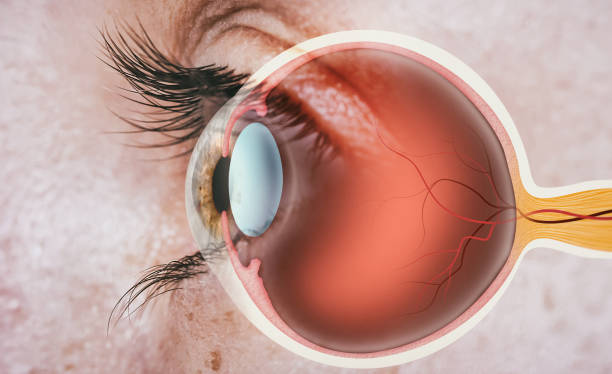Right Now
7 Common Eye Problems You Shouldn't Ignore

Vision is one of our most precious gifts. Our eyes allow us to enjoy the world, communicate, work, and enjoy life. Unfortunately, many of us suffer from vision problems that arise unexpectedly and can significantly impact our quality of life. Furthermore, some eye conditions can be asymptomatic and not recognized until they have already caused serious damage. In this article, we have gathered seven of the most common eye problems everyone should be aware of.
1. Dry eyes
If your eyes are gritty, red, itchy, and burning, you may be suffering from dry eye disease. This problem is especially common in people who spend a lot of time working on computers or in air-conditioned rooms. The cause can be insufficient tear production or rapid evaporation. To relieve this, doctors often recommend the use of artificial tears and taking regular breaks from screen work. In severe cases, medication may be necessary.
2. Floating threads and flashes
The appearance of black dots, threads, or flashes of light in front of your eyes can be frightening. In most cases, this is a sign of vitreous destruction—a natural, age-related process. However, if flashes or floating eyes occur suddenly and frequently, it could be a sign of retinal detachment—a serious condition that requires immediate medical attention.
3. Redness
Redness of the eyes can indicate many different problems: from ordinary fatigue and allergies to serious inflammatory diseases such as conjunctivitis or uveitis. It is especially worrying if the redness is accompanied by pain, visual disturbances, or discharge. In this case, you should definitely postpone a visit to the doctor. Avoid self-medication: Anti-redness drops can mask the problem, but they do not eliminate the cause.
4. Vision problems
One of the most common complaints is: "I can't see far" or "I can't read the small print." This can be a sign of nearsightedness (myopia), farsightedness (hyperopia), or presbyopia (age-related deterioration of near vision). Such changes often develop gradually, and people simply get used to the deterioration of their vision over time. The solution is simple: a timely visit to an ophthalmologist, an eye exam, and, if necessary, the choice of glasses or contact lenses.
5. Itchy and watery eyes
If your eyes itch, especially during certain times of the year, and you're constantly wiping away tears, it could be allergic conjunctivitis. It's caused by pollen, pet dander, dust, cosmetics, and other irritants. In this case, antihistamines and avoiding contact with the allergen can help. However, don't self-diagnose: Similar symptoms can also occur with infectious eye diseases, which require different treatment.
6. Eye fatigue and strain
Today, many of us spend 8–12 hours a day in front of screens—computers, tablets, or smartphones. This leads to what is known as visual fatigue syndrome (or computer vision syndrome). The eyes begin to hurt, become dry, feel heavy, and vision may deteriorate. To avoid this problem, it's important to follow the 20-20-20 rule: Take a 20-second break every 20 minutes and look at an object 20 feet away. Also, pay attention to proper posture at the computer and the lighting.
7. Increased intraocular pressure (Glaucoma)
Glaucoma is one of the most insidious eye diseases because it causes no symptoms in its early stages. However, increased intraocular pressure gradually destroys the optic nerve and can lead to complete blindness. Those affected only notice the problem when their peripheral vision deteriorates. Therefore, it is important to regularly check their intraocular pressure, especially after the age of 40. If detected early, glaucoma can be treated with eye drops and other treatments.
What to do if you notice a problem?
The most important thing is not to ignore the symptoms. Even if it seems minor, a visit to an ophthalmologist will help identify the cause and prevent complications. Regular examinations are especially important for chronic conditions (e.g., diabetes or high blood pressure), as these directly affect eye health.
More Posts









Report This Post
Please complete the following requested information to flag this post and report abuse, or offensive content. Your report will be reviewed within 24 hours. We will take appropriate action as described in Findit terms of use.



